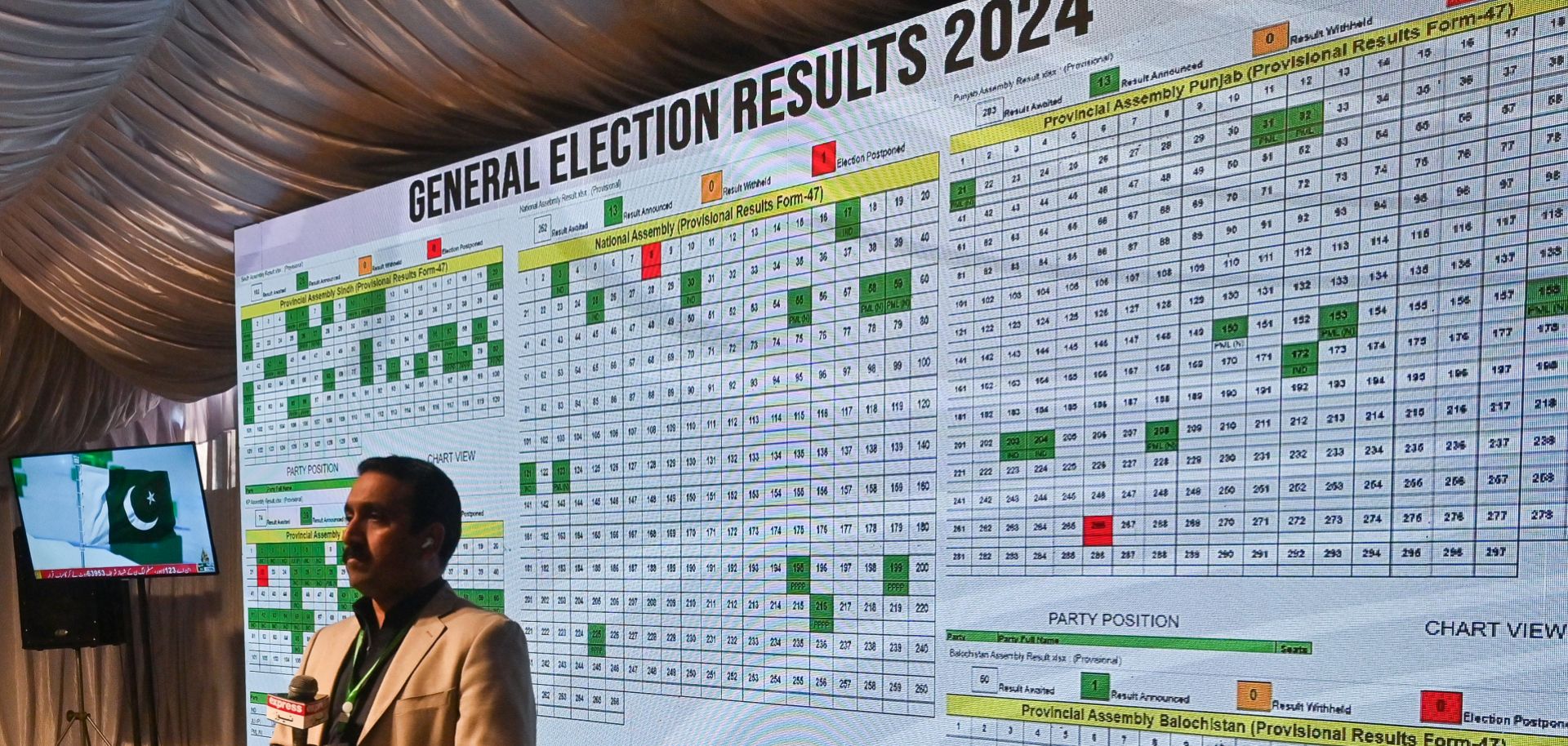The inconclusive outcome of Pakistan's national elections marks a setback for the military and portends scaled-down economic reforms and further political instability; however, the country's powerful army will likely still succeed in pressuring ideologically divergent parties into forming a coalition government devoid of members aligned with former Prime Minister Imran Khan. On Feb. 11, the Election Commission of Pakistan (ECP) announced that independent candidates affiliated with Khan's Pakistan Tehreek-e-Insaf (PTI) party had secured 93 of the 266 National Assembly seats elected by direct voting in the country's Feb. 8 general elections. The Pakistan Muslim League (PML-N), led by former Prime Minister Nawaz Sharif, came in second with 75 seats, followed by the Pakistan People's Party (PPP), led by former foreign minister Bilawal Bhutto Zardari, with 54 seats. Additionally, Muttahida Qaumi Movement (MQM), a party likely to play a key role in coalition talks, secured 17 seats. However, with no clear...

